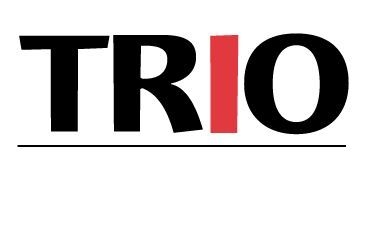You have /5 articles left.
Sign up for a free account or log in.

U.S. Department of Education
Since 1964, millions of high school students from low-income homes have become the first in their families to earn a college degree thanks to the federally funded Upward Bound programs that operate in each state. Established as part of President Lyndon B. Johnson’s War on Poverty, these programs invite high school students from low-income families to study on a college campus. During the school year, they have access to tutoring and academic counseling to keep them on track for graduation, and come summer, they move into dorms and enroll in classes designed to prepare them for the year ahead.
Campus communities rally around Upward Bound students, providing crucial resources and developing in them a sense that they belong in college. The parents of such students may offer them unwavering support, but they cannot pass down nostalgia for and understanding of a college they never attended. They may instill discipline and be generous in their encouragement to pursue a college education, but they are unlikely to be of much help to their child when it comes to filling out the Common App or choosing which admissions test to take. Knowledge of these processes, though less valuable than a parent’s love, is no less consequential.
Programs like Upward Bound exist to counteract the countless barriers that keep poor, talented children out of college. Too many of these students find themselves just one missed deadline, financial aid application error or SAT question away from seeing their dream of a formal education slip farther out of their hands. Upward Bound programs offer crucial outreach and counseling services, including increasing academic and financial literacy for students aimed at assisting students during the college application process.
It is too ironic, then, that dozens of Upward Bound programs were recently imperiled due to minor formatting errors made on their grant applications. Previously, under the direction of Secretary Betsy DeVos, the U.S. Department of Education denied funding to programs on 44 campuses due to double-space or font mishaps. In light of recent circumstances, however, the currently imperiled Upward Bound programs across the country may be safe, at least for now. Last week, during her testimony in front of the House Committee on Appropriations, Subcommittee on Labor, Health and Human Services, and Education, Secretary DeVos committed to reconsider the ineligible applications using funds and direction provided by Congress in the 2017 omnibus spending bill. Although the timeline and formal process for the reconsideration of these applications is unclear, this is good news for the students who stand to benefit from the great work that Upward Bound programs across the country do.
While the secretary’s decision to review these ineligible applications will hopefully resolve with the immediate funding scare for this program, we should not and cannot lose sight of the larger picture that this administration is drawing. Proposed cuts to TRIO funding, which includes Upward Bound, will shut the doors of these vital centers across the country.
And just that quickly, a sense of belonging 50 years in the making can evaporate, along with the security of an academic support system that bridges the resource gap between the rich and the poor.
Upward Bound programs serve children of every background: black and Latino children in big cities; white children in small, rural towns; and everyone in between. They are neither wasteful nor experimental. They offer the counseling, tutoring and mentorship that has been the cornerstone of high school success and a pathway to higher education for generations.
New York City, where the Upward Bound concept was conceived and first implemented, will certainly feel the loss of this critical investment in our young people. The Double Discovery Center, which houses a program at Columbia University, has educated thousands of children from surrounding neighborhoods, like Harlem and Washington Heights. Those graduates continue to contribute to their communities in various capacities. They are business leaders and teachers, lawyers and nurses, counselors and artists, and they serve this country as members of the military.
Some Upward Bound programs will survive, temporarily buoyed by the resources of their home campuses, but others will cease to operate should this administration’s budget be enacted. Although the Department of Education will no longer mandate formatting features in future grant applications, this directive will not help the programs that will no longer receive funding due to the proposed slashing of TRIO's budget, ultimately leaving those who need these programs the most in the dark. Over the longer haul, the proposed cuts in the TRIO program, if implemented, could have lasting impact. An unknown number of students will not go to college because of a callous indifference to their success.
Through systematic and unfounded cuts to education programs of all types, including Upward Bound, the administration’s recently released budget proposal will destabilize and destroy a system that is meant to help our students. However, this should not surprise us -- President Trump and Secretary DeVos have embraced a voucher-centric brand of school choice that leaves underserved students behind and undermines the ability of public education to function by funneling desperately needed money away from our public education system and into private schools.
Meanwhile, Upward Bound programs help relieve overburdened and understaffed school districts. In most schools, the average guidance counselor is responsible for nearly 400 children -- well over the 250-to-one student-to-counselor ratio recommended by the American School Counselor Association. In other words, Upward Bound is a crucial component of a broader system that makes public schools work.
In this moment, we all stand witness to the dismantling of the public infrastructure. The wounds sustained will be both concrete and emotional. Children who eagerly enroll in summer school and Saturday classes will be punished for mere technicalities, while leaders in our government escape any accountability for the promises they break, the legacies they destroy and the personal and economic reverberations of those actions.
Otherwise, more damage will be done before any rebuilding can begin. Rather than making drastic cuts to our critical domestic education programs without any foundation in policy or well-reasoned basis, we should be investing in our future, which means investing in our students. Programs like Upward Bound serve to close the education gap that exists between far too many low-income or minority students and their peers. Ensuring Upward Bound is maintained today guarantees participating students have an opportunity to achieve educational success in their future.








